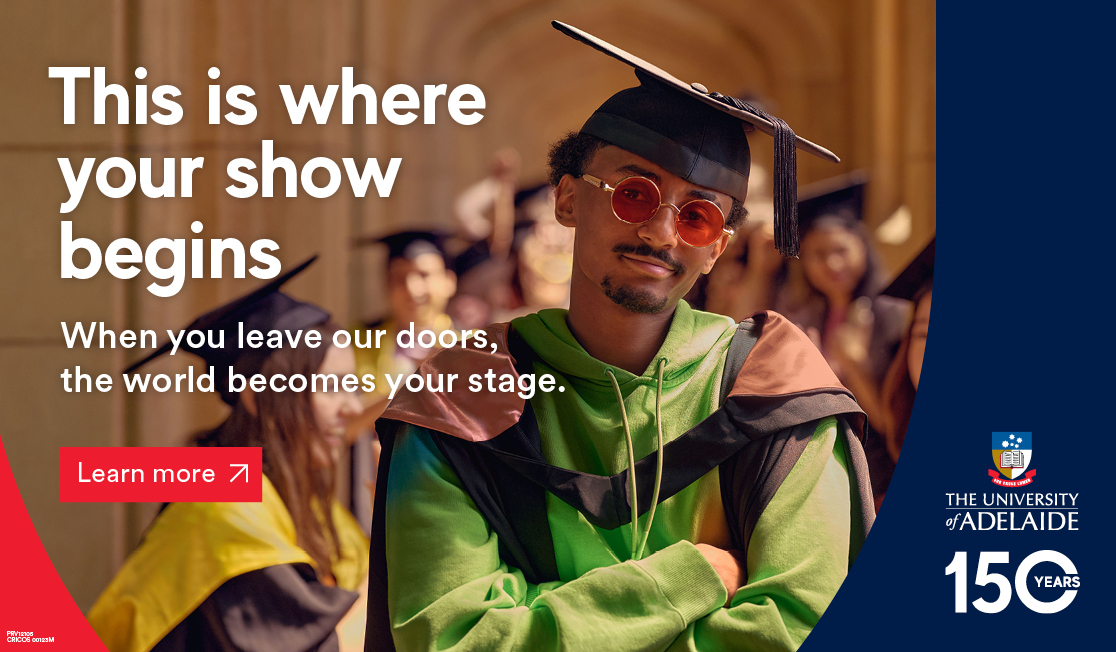Goldner String Quartet: The 2000s Program
Goldner String Quartet: The 2000s Program content
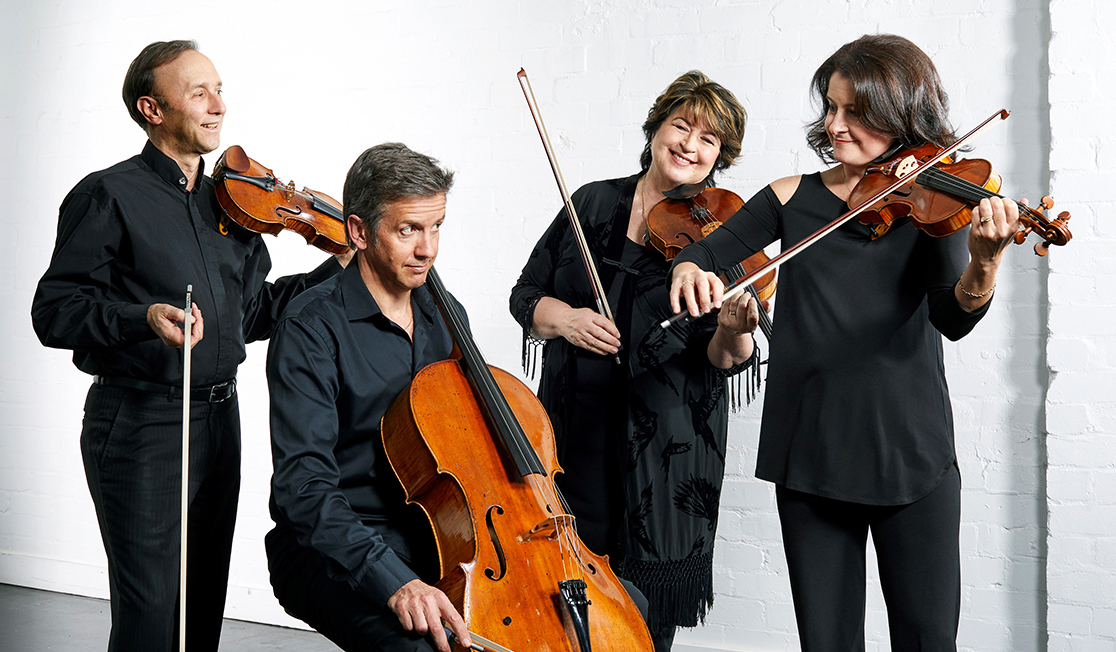
Music | Daylight Express
Goldner String Quartet: The 2000s
Dates: 13 Mar 2024
Venue: Elder Hall, The University of Adelaide
Duration: 1hr 5mins, no interval
Note: Latecomers will be admitted at a suitable break in the performance.


Contents
Credits
Program
Introduction
Program Notes
About Goldner String Quartet
Biographies
Adelaide Festival is committed to sustainability and does not offer printed programs for most works. Our digital show programs have a contents section for easy navigation. If you would prefer a pdf that you can download or print at home, please click here >>
Credits
Dene Olding, violin
Dimity Hall, violin
Irina Morozova, viola
Julian Smiles, cello
Program
Nigel Westlake
String Quartet No.2 (2005)
Ross Edwards
Adagietto from Quartet No.2
Shekina Fantasy (2008, rev. 2010)
Elena Kats-Chernin
Blue Rose (2005)
Carl Vine
Quartet No.5 (2007)
Introduction
The Goldner String Quartet play three concerts at Adelaide Festival as part of their 30th and final season.
Program 1: The 2000s
When we appeared at the Adelaide Festival in 2000, it seemed logical to perform a retrospective look at great quartets from the 20th Century. Hence, our epic project to play 10 concerts - each devoted to a decade of that amazing century.
We would like to bring this project up to date with quartet music from the first three decades of this century. This time, the emphasis is on offerings from important Australian composers. As 2024 will be our 30th and final season as the Goldner String Quartet, we have chosen some of our favourites, including many that were written for us. In this opening concert, you will hear the uplifting sounds of our friends Nigel Westlake, Ross Edwards, Elena Kats-Chernin and Carl Vine.
Program 2: The 2010s | More information >>
As we move into the second decade of this century, we see music often used as a medium for conveying important messages about nature, indigenous affairs and the emergence of more young women composers. In addition to Australian composers Peter Sculthorpe, Ella Macens, Paul Stanhope and Matthew Hindson, we honour our Kiwi cousins and present a wonderful work from 'across the ditch' by Gareth Farr which perfectly follows this Nature theme.
Program 3: The 2020s | More information >>
Of course, this decade is far from over, but we already have a number of significant works to add to the repertoire including those by rising Australian stars Harry Sdraulig and Christine Pan which begin the concert. We follow this with a special treat, performing the Australian Premiere of the latest quartet from the great Latvian composer, Pēteris Vasks. A composer with great emotional depth and humanity whose music is also closely connected to his natural environment, Vasks’ most recent quartet is written from the heart in a passionate and meditative style incorporating choral sounds and folk elements.
In 2020, to celebrate our 25th anniversary as a quartet, the Australian Festival of Chamber Music commissioned 25 wonderful Australian composers of our choice to each write a short variation on Beethoven’s theme Ode to Joy. For this 30th Season, we have selected five new additions, as a result of a competition for composition students at the Sydney Conservatorium, giving us a view into the future. We can think of no better way to showcase the depth and variety of Australia’s musical life than to perform these Goldner Variations to celebrate our 30th and final season.
Program Notes
Nigel Westlake
String Quartet No.2 (2005)
In four movements, String Quartet No.2 was composed for the Goldner String Quartet to commemorate the 90th birthday of one of Australia’s most prominent musical philanthropists, Kenneth Tribe AC AO, and is dedicated to him.
Leaning towards more traditional forms of structure, the work is divided into four contrasting movements that encompass a wide range of emotional expression. The musical language is simply based on the building of musical resonances, melodic contours and rhythmic impetus.
The compositional process can be difficult to quantify & frequently operates on a subliminal level. My past experience with the members of the quartet (we all played together in the Australia Ensemble from 1987 –92) served as a touchstone in the writing of this work, this knowledge in some ways informing certain decisions during the compositional process.
The first movement opens with a series of fragmented gestures, fluctuating in tempo and dynamic, the music taking a moment to find its feet before settling into a driving exploration of changing metres, polyrhythms, displaced accents and percussive devices. It ends with a free form viola solo that is underpinned by an accompaniment of repeated cello semiquavers and displaced violin pizzicato ostinati.
Predominantly in a lilting feel of five eight, the 2nd movement acts as a short interlude of whimsical character, separating the serious determination of the 1st movement and the subdued lyricism of the 3rd movement.
In contrast to the rest of the quartet, the 3rd movement consists of music of a slow and sustained nature. It is characterised by long extended melodies that gather momentum, reaching a peak of intensity about halfway through, that then subside and fade to nothing over an unresolved sustain.
A “pre-amble” marked “freely with expression – quasi improvisatorial” opens the 4th movement and serves as a bridging mechanism. A series of free form violin phrases are echoed by muted cello, supported by a sustained drone of the middle voices. The mood is broken by a sudden “attacca” which launches the final section of the work, a manic and unrelenting scherzo characterized by feverish semiquaver activity, percussive string writing and rhythmic invention.
String Quartet No.2 was commissioned for the Goldner String Quartet and Musica Viva by Kenneth W. Tribe.
- Nigel Westlake
Ross Edwards
Adagietto from Quartet No.2
Shekina Fantasy (2008, rev. 2010)
My second (mature) string quartet draws together and attempts to reconcile diverse components of my musical language from its formative years to the present day. The canvas is wide: my influences have been absorbed from natural and cultural environments of Australia and South East Asia: birdsong, real or imagined; textures revolving on various kinds of chant and drone which have been shaped and inflected by insect sound patterns; and others drawn from my European heritage (plainsong, counterpoint). All have been rigorously compressed and, I hope, integrated into a comprehensive statement of an intuitive personal mythology which views the world from an Australian perspective.
A fantasy episode centered on the Magnificat prefigures my rhapsodic treatment of a phrase of this canticle throughout the second movement, where it is introduced by the cello. Marked cantando, it represents the human voice, and I associate its song with the Shekina, the female soul of God – a yearning for the possibility of ecological healing and human survival on the planet. References to the canticle are woven into textures ranging between extremes of intensity and ethereality before coming to rest in a calm, final statement.
My quartet is dedicated to Ken Tribe and the Goldner Quartet with gratitude and affection.
- Ross Edwards
Elena Kats-Chernin
Blue Rose (2005)
Blue Rose is based on two folk melodies which have been freely developed. It uses uneven beats and bars which creates a rocking feeling that is somewhat reminiscent of Balkan music. The title refers to the way the piece starts, unfolding and blooming as it slowly becomes stronger, like the blue light of dawn. It is one of the few pieces of mine that is based in a major key (D major). Apart from the string quartet version, there is also a version for violin and piano.
- Elena Kats-Chernin
Carl Vine
Quartet No.5 (2007)
The fifth string quartet contains six clear sections but like much of my music is cast in one continuous movement. There is some repetition and development of material throughout the work but this is less important to its structure than dramatic and musical contrast across the complete arc. The architecture is consciously informal, and the work may be viewed as a single-movement fantasia. There might be a narrative hidden within the music, but I'm certain there is no story.
- Carl Vine
About Goldner String Quartet
Celebrating its 30th Concert Season in 2024, the Goldner String Quartet has long-standing recognition as not only Australia’s pre-eminent string quartet, but as an ensemble of international significance.
The Quartet is named after Richard Goldner, founder of Musica Viva Australia. Launched in 1995 and still retaining all founding members, the musicians are well known to Australian and international audiences through their performances and recordings and for their concurrent membership of the Australia Ensemble at UNSW. All members have occupied principal positions in organisations such as the Sydney Symphony Orchestra and Australian Chamber Orchestra. They have toured extensively in Australia and internationally.
Special projects have included a major 20th-Century retrospective, and the complete Beethoven String Quartet Cycle. The Quartet’s appearances in the 2011 City of London Festival drew capacity audiences and unanimous praise from UK critics, and were broadcast on the BBC. Other Goldner projects have included a DVD documentary entitled The Quartets, recorded live with renowned Australian composer Peter Sculthorpe in 2012 (released by ABC Classics), and an international project in celebration of Sydney’s Sister Cities.
The Goldner’s live recordings of the complete Beethoven String Quartet cycle released on ABC Classics, won the 2009 Limelight Award for Best Classical Recording. The Quartet has numerous well-reviewed recordings for prestigious UK label Hyperion, the complete quartets of Szymanowski and Stravinsky on Naxos, and the complete quartets of Carl Vine on ABC Classics.
Strongly committed to encouraging the next generation of string quartets, the Goldners have mentored young ensembles through programs of the Australian Youth Orchestra, Musica Viva Australia, the Australian National Academy of Music, the Sydney Conservatorium, and AFCM Townsville.
New works have been regularly commissioned for the Goldners from many of Australia’s leading composers.
Biographies
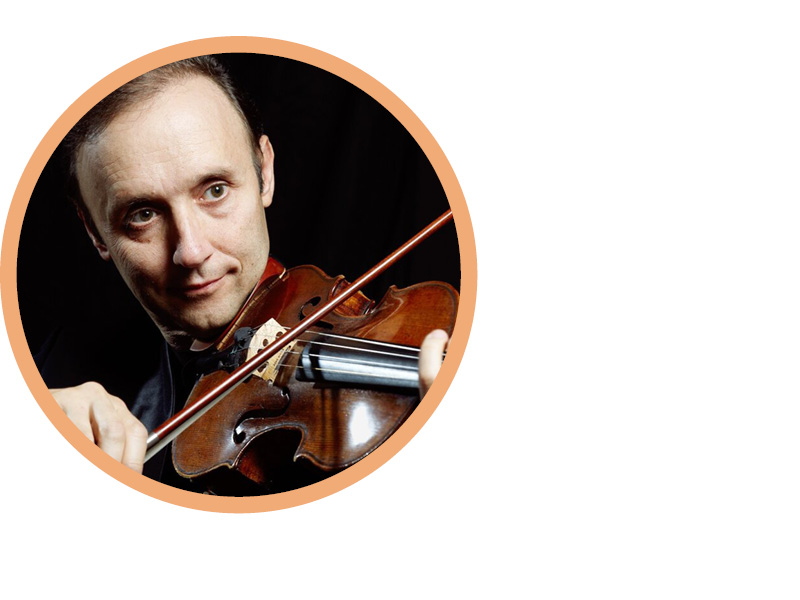
Dene Olding
Violin
Dene Olding is recognised as one of Australia’s most outstanding violinists. He is currently first violinist for the Goldner String Quartet and the Australia Ensemble (resident at the University of New South Wales) and Concertmaster Emeritus of the Sydney Symphony Orchestra.
As a soloist he has worked with all of the Australian Symphony and Chamber Orchestras in a range of repertoire. He has performed over forty concertos and worked with some of the world’s leading conductors including Edo de Waart, Stanislaw Skrowaczewski, Jukka-Pekka Saraste, Stuart Challender, Sir Charles Mackerras, Jorge Mester, Gunther Herbig, Werner Andreas Albert, David Porcelijn and Vladimir Ashkenazy. He gave the Australian premiere performance of Lutoslawski’s Chain 2 with the composer conducting, Elliott Carter’s Violin Concerto and the Violin Concerto of Philip Glass. In addition, he has performed world premieres of violin concertos by Carl Vine, Ross Edwards , Bozidar Kos and the Double Concerto for violin and viola by Richard Mills, written for himself and his wife, Irina Morozova.
Dene has also held the position of Leader and Director of the Australian Chamber Orchestra and is often sought after to lead/direct concerts with many other orchestras. He has also been the Artistic Director of the Mostly Mozart Festival at the Sydney Opera House, Music in the Hunter and the Sydney Festival Chamber Music Program. He appears regularly at the Australian Festival of Chamber Music and at many festivals in Australasia and Europe. In 2010 he appeared at the Edinburgh Festival as soloist with the Sydney Symphony Orchestra and conductor, Vladimir Ashkenazy.
Dene attended the Juilliard School In New York from the age of fourteen as a scholarship student of Ivan Galamian and Margaret Pardee. He graduated in 1978 with the Master of Music Degree and was awarded the Morris Loeb Prize. Other studies included master classes with Nathan Milstein and further lessons with Herman Krebbers and Gyorgy Pauk. In 1985, he was awarded the Winston Churchill Memorial Trust Fellowship to further his musical studies and during that year, became a Laureate of the Queen Elisabeth of Belgium International Violin Competition.
Solo recordings include a sonata disc of Brahms, Beethoven and Mozart for ABC Classics with his father, Max Olding, the CD premiere of concertos by Frank Martin and Milhaud and concertos by Samuel Barber and Ross Edwards (Maninyas) – winner of the 1994 A.R.I.A. award for “Best Classical Recording” and the prestigious Cannes award. He has also recorded the Hindemith violin concerti with the Queensland Symphony Orchestra under Werner Andreas Albert for CPO. His numerous chamber music CD’s have also received acclaim. The recordings of the chamber music of Edward Elgar with the Goldner Quartet and pianist Piers Lane for the Hyperion label was selected as Gramophone magazine’s “Record of the Month” and spent time on the “Classical top 10” in the UK. Beethovens complete string quartets with the Goldner quartet for ABC Classics was chosen Classical album of the year by Limelight magazine and his recording of rare Rachmaninov violin works with pianist Vladimir Ashkenazy also received praise from The Strad magazine.
In 2011, he gave the premiere performance of the Carl Vine violin concerto with the Australian Youth Orchestra at the Sydney Opera House.
As a founding member of the Goldner String Quartet and the Australia Ensemble, he regularly tours to Europe, Asia and New Zealand. He has been awarded the Centenary Medal of Australia, a Member of the Order of Australia and has received numerous awards and accolades for his performances in all spheres of music-making. Dene is passionate about the future of classical music and sees his former role as Artistic Adviser and frequent jury member for the Michael Hill International Violin Competition as making an important contribution to that end. He manages to combine a passion for Aikido and sailing with his busy musical career and spending time with his wife, Irina and son, Nikolai.
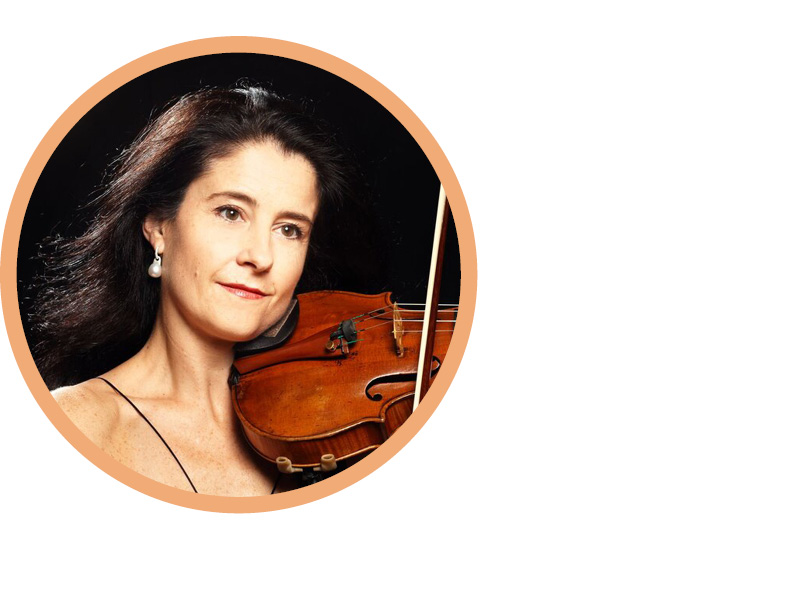
Dimity Hall
Violin
Dimity Hall is well known to national and international audiences as a member of both the Goldner String Quartet and the Australia Ensemble@UNSW with whom she has performed, toured and recorded extensively, to critical acclaim.
Dimity made her solo debut with the Sydney Symphony in 2002 performing Vaughan Williams’ The Lark Ascending, later recording the work for ABC Classics. Her recording remains one of the most frequently broadcast versions in Australia. She has also been soloist with the Australian Chamber Orchestra, Canberra Symphony Orchestra and Brisbane's Camerata, amongst others.
After studying with Alice Waten in Sydney, Dimity undertook postgraduate studies with Herman Krebbers in Amsterdam on a Netherlands Government Scholarship, where she won the Concertgebouw's coveted Zilveren Vriendenkrans Award for young soloists. She performed in recitals and as a casual member of the Royal Concertgebouw Orchestra for concert tours and recordings.
Formerly Principal Second Violin of the Australian Chamber Orchestra, she has also appeared with them as guest Leader and with the Sydney Symphony as guest Principal. Dimity has performed as a member of the Australian World Orchestra and as guest Concertmaster for the Australian Opera, the Adelaide and Melbourne Symphony Orchestras.
Dimity was a juror for the 2003 Melbourne International Chamber Music Competition, and has coached young chamber musicians for Musica Viva, the Sydney Conservatorium, ANAM and the Australian Youth Orchestra. From 2008-2016 Dimity combined with semi-finalists in their chamber music performances as part of the Sydney International Piano Competition. In 2017 she, together with husband Julian Smiles, performed for James Crabb’s ‘Ukaria 24’ festival where they also worked alongside the AYO Momentum ensemble. In 2019, Dimity and Julian were resident artists for the Queensland Conservatorium’s Side by Side program: coaching individual string players, chamber music ensembles and leading a chamber orchestra of staff and students.
Regular festival appearances include the Australian Festival of Chamber Music, Huntington Estate Music Festival, Musica Viva Festival, and Music in the Hunter, to name just a few. Recent solo performances include the Brahms Double Concerto (with Julian Smiles) and the Beethoven Triple Concerto (together with Julian and pianist Piers Lane) with orchestras in Canberra and Sydney.
Dimity plays a Nicolo Gagliano violin, kindly on long-term loan from the Olding family.
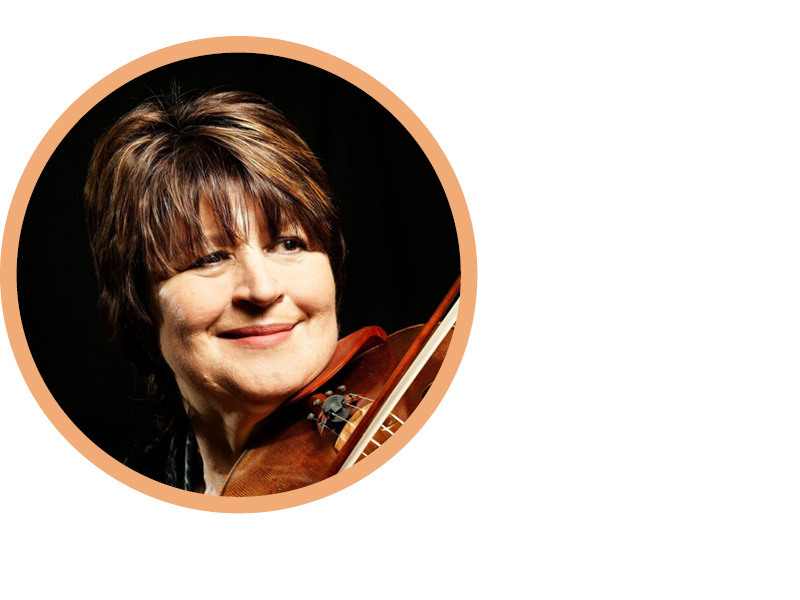
Irina Morozova
Viola
In a long and distinguished career, Irina Morozova, one of Australia’s leading violists, has been principal viola of the Australian Chamber Orchestra, the Australian Opera and Ballet Orchestra and guest principal of the Sydney Symphony and Hong Kong Philharmonic Orchestras. She is a foundation and current member of both the Australia Ensemble @UNSW and the Goldner String Quartet . With these two groups she has performed in nearly 30 countries around the world and has recorded extensively – particularly for the Hyperion Label in the UK and for Tall Poppies and ABC Classics in Australia.
After studies with Richard Goldner and Robert Pikler at the NSW State Conservatorium of Music, she undertook advanced studies and work in Europe and the USA before returning to Australia. She has regularly appeared as a soloist with major Australian and New Zealand orchestras. A member of distinguished chamber music juries, she presided on the juries of the Shostakovich International String Quartet Competition in St Petersburg, Russia, the Melbourne International Chamber Music Competition and was invited to perform and adjudicate at the Lionel Tertis International Viola Competition on the Isle of Man.
Irina often tutors chamber music for the Australian National Academy of Music and the Australian Youth Orchestra and was involved in the establishment of the Huntington Ensemble Challenge which encourages and provides tutoring for music students in country areas (initially around Mudgee) to play chamber music.
She is married to violinist Dene Olding, Concertmaster Emeritus of the Sydney Symphony and also a member of the Australia Ensemble and Goldner String Quartet. They have frequently performed as soloists together and premiered the double concerto written for them by Richard Mills. They live in Sydney with their son, Nikolai.
Irina plays a viola made for Richard Goldner by A.E. Smith of Sydney in 1947.
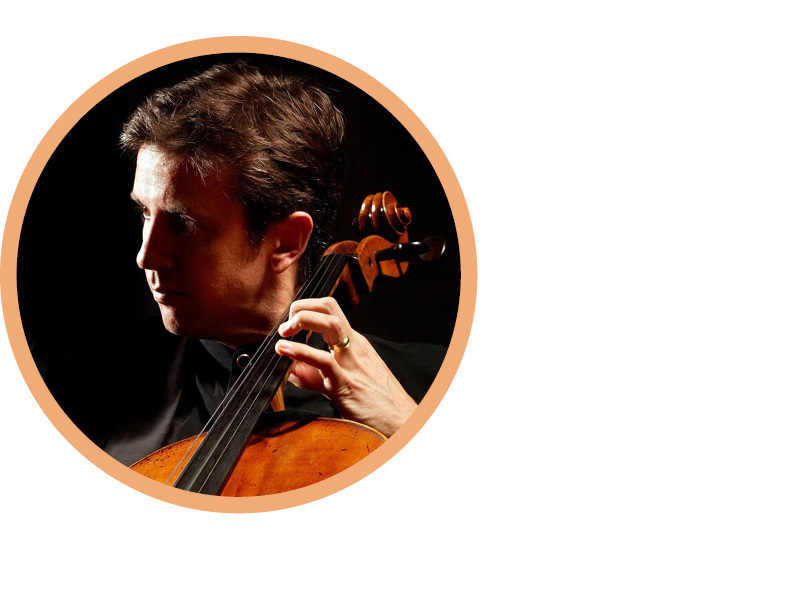
Julian Smiles
Cello
Julian Smiles has for over 30 years been a central figure in cello performance and teaching in Australia. On graduating from the Canberra School of Music at the age of nineteen he was appointed principal cellist with the Australian Chamber Orchestra and rapidly gained prominence as a chamber musician in performances for Musica Viva Australia, Kathryn Selby and Friends and at the Huntington Estate Music Festival.
In 1991 he was invited to join the Australia Ensemble@UNSW, and in 1995 formed the Goldner String Quartet with colleagues Dene Olding, Dimity Hall and Irina Morozova. With these two chamber groups he has performed to critical acclaim at major venues and festivals throughout the world, made over 30 CDs on leading labels, and premiered many works by Australian and international composers.
Julian’s appearances at festivals over the years have included artistic collaborations with musicians such as Piers Lane, Tasmin Little, Edgar Meyer, Alexander Sitkovetsky, Amy Dickson and James Crabb. He has also been engaged as a collaborative artist in the chamber music round of the Sydney International Piano Competition of Australia on numerous occasions.
Julian is active as a soloist with numerous concerto appearances. During 2018 Julian’s high standing as a performer was recognised by the Canberra Symphony Orchestra, as their inaugural “Artist in Focus”. In this role he performed recitals and appeared as soloist with his wife Dimity Hall and pianist Piers Lane in performances of the Beethoven Triple Concerto. He has also premiered works for solo cello by eminent Australian composers such as Carl Vine and Mark Isaacs.
Julian has appeared frequently as guest principal cello with orchestras including the Sydney Symphony, Tasmanian Symphony, and Australian Opera and Ballet, and over the last few years has performed frequently as guest principal with the Auckland Philharmonia Orchestra. He is also an ongoing member of the Australian World Orchestra.
Having studied with Nelson Cooke and renowned cellist and teacher Janos Starker, Julian has developed a school of cello playing based on thorough and ongoing analysis of musical and technical issues that sees him sought after as a teacher and chamber music coach. He has held teaching positions at the Australian Institute of Music and Canberra School of Music, and is currently Senior Lecturer in Cello at the Sydney Conservatorium of Music.
An alumnus of the Australian Youth Orchestra, having toured Europe as their principal cellist on their Bicentennial Tour in 1988, Julian has remained committed to coaching young musicians in the orchestral and chamber music programs of that organisation. He has also worked with students of the Australian National Academy of Music and in 2019 he and Dimity curated a “Side by Side” project of mentoring and performances at the Queensland Conservatorium Griffith University.
He has also served as a juror for a number of major competitions, including the Melbourne International Chamber Music Competition in 2007 and the Gisborne International Music Competition in 2019.
When not performing or teaching Julian enjoys playing with his dogs and body surfing with his son Alex on beaches on the south coast of New South Wales.
Julian plays on an 1827 Lorenzo Ventapane cello.

From Adelaide Festival & Partners
Partnering for Conservation
Adelaide Festival and Wilderlands currently safeguard 3,424m² of the Coorong Lakes habitat.
Help us reach 5,000m² by claiming your free 1m² by 22 April 2024 - take action here.
The UNIVERSITY OF ADELAIDE | Learn more >>
